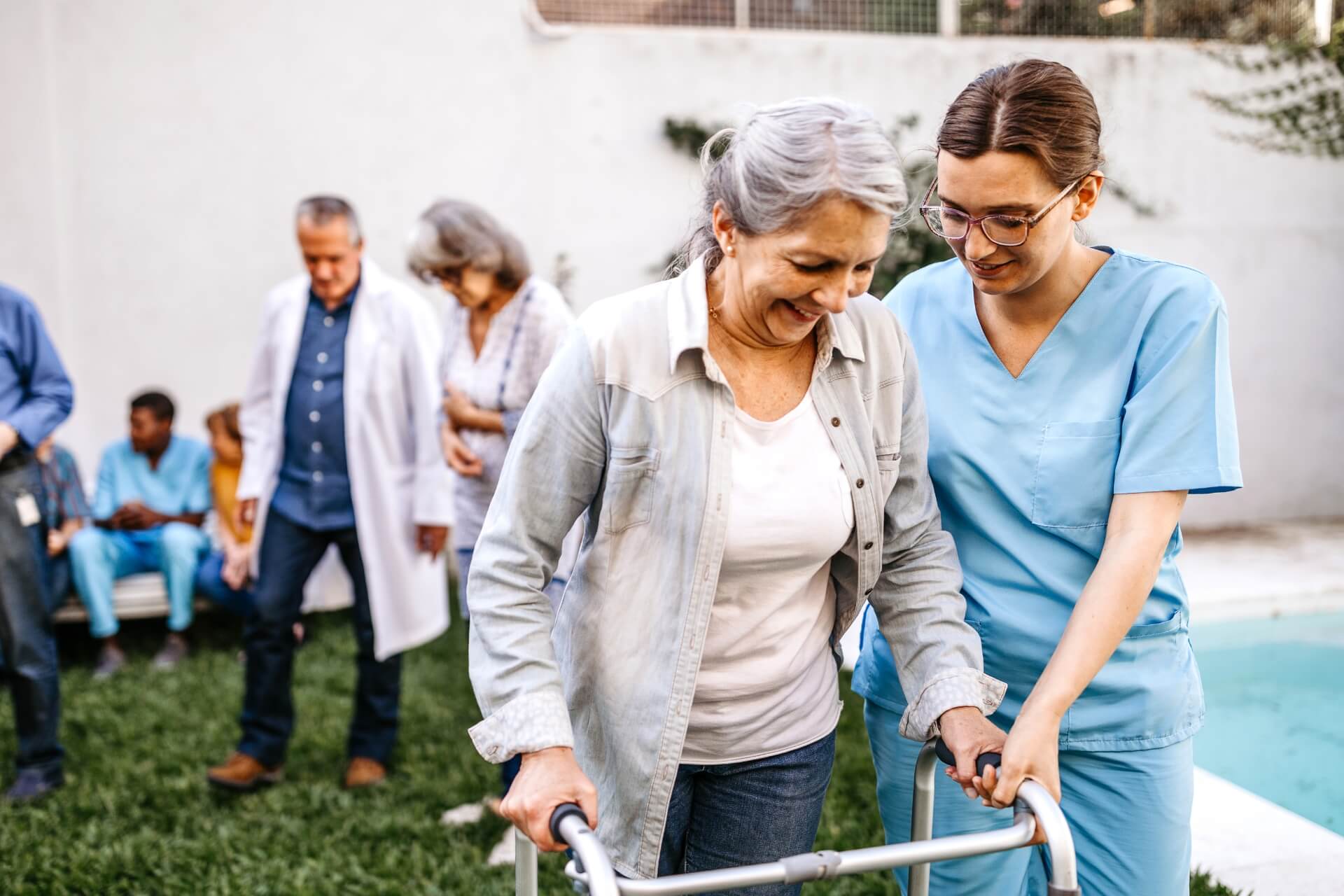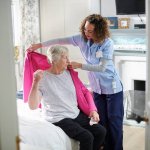Fall Prevention Tips

Falls among the elderly are a public health concern in the United States. Millions of American seniors report them every single year, and they often result in major injuries. In fact, falls are the leading cause of both fatal and nonfatal injuries in anyone above 65 years of age. While anyone can take a tumble if they’re not careful, it’s important to take extra precautions if you or a loved one are at risk. Here are a few of our best fall prevention tips for seniors.
Secure Your Home
One terrific way to keep yourself and loved ones safe from falls is to secure your home. Make sure all stairways and walkways are well lit and clear of clutter. If you have any loose rugs or carpets, then consider placing grip tape or a nonslip mat beneath them. This will reduce the chance that they’ll cause problems with everyday use.
If you haven’t already, consider adding nonslip mats to your bathtub, shower, and bathroom floors. Install grab bars or handrails inside your shower, near any toilets, and beside all staircases. Also, assess the condition of your home’s lighting, and either replace or add lights to improve indoor brightness.
It’s also important to check outdoor surfaces such as decks, porches, sidewalks, and driveways for slick spots. If needed, apply sand or ice melting products to help improve traction during the winter. During spring, summer, and autumn months, do your best to clean up any excess mud or water on outdoor concrete. These hazards can quickly cause slippery mold and mildew to grow in a matter of days. We recommend always wearing durable, nonslip shoes whenever walking outside to aid in fall prevention.
Be Aware of Your Surroundings
It’s essential to pay attention to your environment when you’re walking around both inside and outside. It’s also smart to wear nonslip sandals when taking a shower, using the bathroom, or working in the kitchen. If possible, keep a trusted friend or family member nearby and aware of your plans.
When inside, watch out for pets, toys, furniture, and loose items that may get in your way. Make sure there aren’t any obstacles that could trip you or cause you to lose your balance. Be on the lookout for rugs and carpets that may be bunched up, as well as any wet surfaces that could make the floor slippery.
When outside, keep an eye out for potential hazards like cracks, potholes, stairs, and curbs that may appear unexpectedly. Avoid walking in outdoor areas with low visibility, and consider bringing a flashlight if you’re out in the evening or early morning. If you plan on hiking or biking, then be especially careful when navigating terrain with sticks, leaves, mud, or standing water.
Consider checking in often with a friend, caretaker, or family member, especially when traveling. A little feedback goes a long way, so try to keep a telephone nearby at all times. It’s simply one of the best ways to get immediate help if an accident were to occur while you’re alone.
Stay Active and Exercise Regularly
Staying active is essential for maintaining strength and balance throughout one’s lifetime. This is one of the most critical fall prevention tips we can offer for anyone. Exercises like yoga and Pilates can improve muscle tone, flexibility, coordination, and posture, which may reduce the risk of falls over time.
Frequent aerobic activity like walking or swimming can keep joints and bones strong while improving circulation. If possible, try joining a local gym or signing up for exercise classes designed specifically for seniors. This can provide much-needed guidance, encouragement, and social interaction during the process. Finally, regular strength training can also increase muscle mass, which will provide more support for bones while walking or standing up from a seated position.
Visit Your Doctor Regularly
Make sure to visit your doctor often so they can check your vision, hearing, medications, reflexes, gait, and coordination. These are all things that can affect your risk of falling if not properly addressed by medical professionals. We recommend scheduling regular check-ups at least twice per year to identify and resolve any issues as soon as possible.
Your physician may recommend certain tests or refer you to specialists who can provide expert care when needed. It’s also important to speak openly with your doctor about any concerns related to balance so they can work with you to develop a personalized plan. In some cases, they may recommend physical therapy, occupational therapy, or prescription lenses to aid in fall prevention.
Fall Prevention Is Our Specialty
Falls can cause serious injuries at any age, but they’re especially dangerous for seniors. Unfortunately, about 20% of falls lead to an injury, and almost all hip fractures are caused by falls. Luckily, most falls and fall-related injuries are preventable.
We take fall prevention seriously at The Waterford. Our assisted living communities are specifically designed to accommodate older residents, and we maintain a high staff-to-resident ratio. This helps to reduce not only the frequency but severity of falls within our communities. If you have any questions or concerns about fall prevention, then we hope you’ll reach out today for more information.



